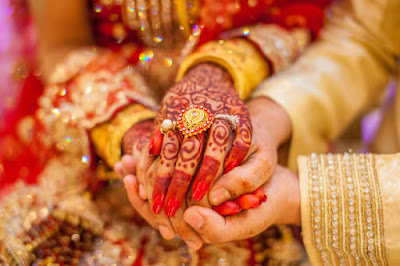How to get Divorced in Arrange Marriage as per Indian Hindu law full process
 |
| Hindu Arrange Marriage Divorce Process |
 |
| AAPKA HAQ FOUNDATION AAPKE SAATH HAMESHA KHADA RAHEGA POORI ZIMMEDARI SE |
In India, the process of getting divorced in an arranged marriage is governed by the Hindu Marriage Act, 1955, the Special Marriage Act, 1954, or the Indian Divorce Act, 1869, depending on the religion of the married couple. Here is a general overview of the divorce process under the Hindu Marriage Act, which applies to Hindus, Buddhists, Jains, and Sikhs:
1. **Grounds for Divorce**: Under the Hindu Marriage Act, a divorce can be sought on various grounds, including adultery, cruelty, desertion, conversion to another religion, unsoundness of mind, and mutual consent.
2. **Filing the Petition**: The first step is to file a petition for divorce in the district court where either spouse resides. The petition should state the grounds for divorce and provide details about the marriage and any children from the marriage.
3. **Mediation and Counseling**: In cases of contested divorce, the court may refer the spouses to mediation or counseling to try to reconcile their differences. If reconciliation is not possible, the court will proceed with the divorce proceedings.
4. **Evidence and Documentation**: Both spouses will be required to provide evidence to support their case, including documents such as marriage certificates, proof of residence, and any other relevant documents.
5. **Court Proceedings**: The court will conduct hearings where both spouses will have the opportunity to present their case. If the court is satisfied that the grounds for divorce are valid, it will grant a decree of divorce.
6. **Appeal**: Either spouse has the right to appeal the court's decision within a specified period if they are not satisfied with the outcome.
7. **Decree of Divorce**: Once the court issues a decree of divorce, the marriage is legally dissolved, and both spouses are free to remarry.
It's important to note that the divorce process can vary depending on the specific circumstances of the case and the state where the divorce is filed. It's advisable to consult with a legal expert or divorce lawyer for guidance tailored to your situation.
 | |
|
In India, the process of getting divorced in a love marriage is similar to that of getting divorced in an arranged marriage. The procedure is governed by the Hindu Marriage Act, 1955, the Special Marriage Act, 1954, or the Indian Divorce Act, 1869, depending on the religion of the married couple. Here is a general overview of the divorce process under the Hindu Marriage Act, which applies to Hindus, Buddhists, Jains, and Sikhs:
1. **Grounds for Divorce**: The grounds for divorce in a love marriage are the same as those in an arranged marriage and include adultery, cruelty, desertion, conversion to another religion, unsoundness of mind, and mutual consent.
2. **Filing the Petition**: The first step is to file a petition for divorce in the district court where either spouse resides. The petition should state the grounds for divorce and provide details about the marriage and any children from the marriage.
3. **Mediation and Counseling**: As in arranged marriages, the court may refer the spouses to mediation or counseling to try to reconcile their differences. If reconciliation is not possible, the court will proceed with the divorce proceedings.
4. **Evidence and Documentation**: Both spouses will be required to provide evidence to support their case, including documents such as marriage certificates, proof of residence, and any other relevant documents.
5. **Court Proceedings**: The court will conduct hearings where both spouses will have the opportunity to present their case. If the court is satisfied that the grounds for divorce are valid, it will grant a decree of divorce.
6. **Appeal**: Either spouse has the right to appeal the court's decision within a specified period if they are not satisfied with the outcome.
7. **Decree of Divorce**: Once the court issues a decree of divorce, the marriage is legally dissolved, and both spouses are free to remarry.
It's important to note that the divorce process can vary depending on the specific circumstances of the case and the state where the divorce is filed. It's advisable to consult with a legal expert or divorce lawyer for guidance tailored to your situation.
How to get Divorced Muslim couples in Love Marriage or Arrange Marriage as per indian law full process
 |
| Muslim Love/arrange marriage divorce process |
In India, Muslim marriages are governed by Muslim personal law, which is based on Islamic principles. The process of divorce for Muslim couples, whether in a love marriage or arranged marriage, is known as "talaq" and is governed by the Muslim Personal Law (Shariat) Application Act, 1937. Here is a general overview of the divorce process for Muslim couples in India:
1. **Talaq**: Talaq is the Islamic term for divorce, and there are different forms of talaq recognized under Muslim personal law:
a. **Talaq-e-Ahsan**: This is the most preferred form of talaq, where the husband pronounces talaq once during a tuhr (period between menstruations) in which no sexual intercourse has occurred. After pronouncing talaq, the husband must abstain from sexual relations with his wife for the iddah (waiting) period of three menstrual cycles. If the wife is not pregnant, the divorce is considered final after the iddah period.
b. **Talaq-e-Hasan**: In this form of talaq, the husband pronounces talaq three times during three consecutive tuhrs, with a waiting period of one menstrual cycle between each pronouncement. If the wife is not pregnant, the divorce is considered final after the third pronouncement and the completion of the iddah period.
c. **Talaq-e-Bid'ah**: This form of talaq, also known as instant triple talaq, is considered irregular and sinful by Islamic scholars. It involves the husband pronouncing talaq three times in a single sitting, which is considered as three separate pronouncements of talaq. However, this form of talaq has been banned in India by the Muslim Women (Protection of Rights on Marriage) Act, 2019, and is no longer legally recognized.
2. **Iddah Period**: After the pronouncement of talaq, the wife must observe the iddah period, which is three menstrual cycles or three lunar months, during which she is not allowed to remarry and must remain in the marital home.
3. **Arbitration**: In case of a dispute regarding the validity or terms of the divorce, both parties may seek arbitration by appointing arbitrators (one for each spouse) to resolve the issues amicably.
4. **Registration**: While registration of divorce is not mandatory under Muslim personal law, parties may choose to register the divorce with the local marriage registrar for documentation purposes.
It's important to note that the process of divorce for Muslim couples can vary based on the interpretation of Islamic law by different sects and scholars. Therefore, it is advisable to consult with a local Islamic scholar or legal expert who is well-versed in Muslim personal law for guidance tailored to your specific situation.
Agar aapko english me padhne nhi aata to aap hamara kone me diya hua translate use karke poore content ko hindi me convert kar sakte hai jisse aapko hamari site me padhne ka anand mile vobhi aapke hi bhasha me.
Thank you for visiting our website
❤❤❤❤❤❤❤
Wapas fir aana





0 टिप्पणियाँ
अगर आपको कोई और सवाल का जवाब पूछना है तो हम आपसे निवेदन करते है हमें कमेंट बॉक्स में पूछे हम आपके सवालो क जवाब देने क लिए बहोत उत्सुक होंगे